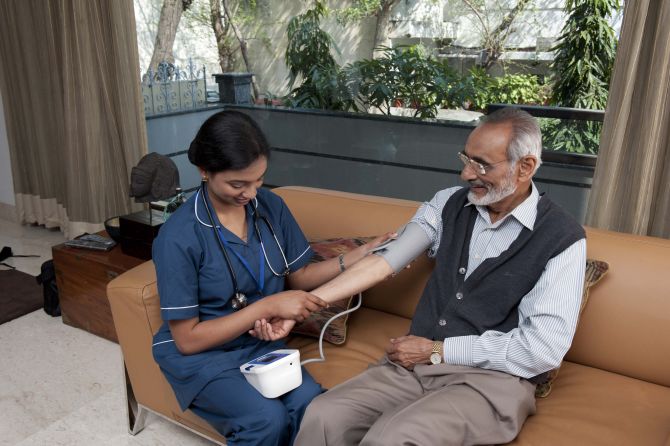The rates of price rise in many services used by the common man, including hospital and nursing, cook, domestic help and bus (fare), among others, have also touched double digits during the last four years, putting a burden on disposable income.

Private coaching for students, which is mandatory in almost every home nowadays, has become costlier since Narendra Modi took over as Prime Minister.
This is reflected in the consumer price inflation (CPI) rate in the sector, which touched double digits.
The rates of price rise in many other services used by the common man, including hospital and nursing, cook, domestic help and bus (fare), among others, have also touched double digits during the last four years, putting a burden on disposable income.
However, it was balanced by low and steady inflationary trend in goods, especially consumer durables, owing to a cut in goods and services tax (GST) rates.
CPI-based inflation rate in private coaching touched 12.25 per cent in January this year, compared with 7.25 per cent in January 2015, seven months after the BJP-led National Democratic Alliance (NDA) government took over.
Item-wise consumer inflation under the base year 2012 is available from January 2015.
But for 2019, March is the latest available inflation data and January numbers are being used for comparison to cut the seasonality factor.
For hospital and nursing charges, the inflation rate more than doubled to 13.5 per cent in January this year compared to 6 per cent in January 2015.
CPI inflation for cooks or domestic servant rose to 10 per cent earlier this year from 6 per cent four years ago.
In case of sweepers, it touched 12 per cent from 5 per cent in January 2015. (See chart).
State Bank of India group chief economic officer Soumya Kanti Ghosh attributed the higher inflation in services like hospital and education-related segments to lack of infrastructure facilities to keep up with the growing demand.

“Also, the services inflation rate is higher compared to goods as GST implementation led to higher taxation rate in some services, whereas the rates were reduced in a number of goods, especially consumer durables and non-durables,” he added.
However, inflation rate for ‘sin goods’ like cigarettes and beer stood at half of what it was four years ago, while for foreign liquor, the rate of price rise fell from 8.28 per cent in January 2015 to 1.76 per cent in January 2019.
Sin goods are subjected to an additional cess over the highest GST tax rate of 28 per cent.
Cigarettes saw increase in cess after the rolll out of GST. Alcohol is not included in GST at the moment.
The GST Council, in its meeting in July last year, had cut rates on a number of consumer durables like small screen TVs, refrigerators and washing machines to 18 per cent, from 28 per cent. In November 2018, the rates for 178 items, including detergents, shampoos and beauty products were reduced from 28 per cent to 18 per cent under GST.
Madan Sabnavis, chief economist of CARE Ratings, pointed out that key services like hospitals and private coaching have shown a sharper growth in inflation rates as the prices in these sectors are revised periodically.
“The sudden jump that we see is due to the fact that prices are revised for these services every three to four years and the statistics office tracks only a fixed set of institutions,” he said.
Sabnavis added that in case of goods, prices have come down after implementation of GST.
Photograph: Reuters











